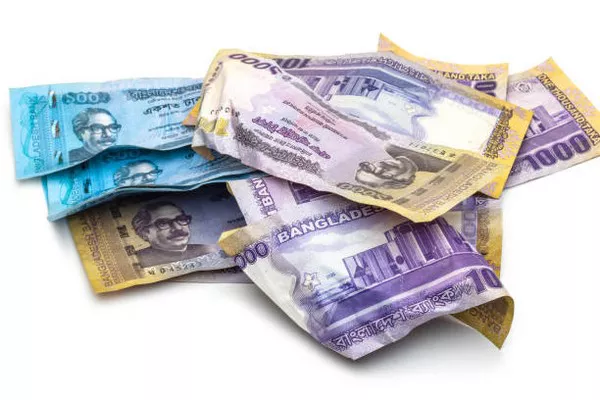In recent months, there has been growing concern about Bangladesh’s economic stability, with a particular focus on the availability of foreign exchange reserves, especially the US dollar. The question on many minds is whether Bangladesh is indeed facing a dollar crisis. This article aims to delve into the various factors contributing to this concern, analyze the current state of the country’s foreign exchange reserves, and explore potential implications for the economy.
Background:
Bangladesh, a developing nation in South Asia, has made remarkable strides in economic growth in recent years. However, like many emerging economies, it faces challenges, including trade imbalances, a reliance on remittances, and vulnerability to external economic shocks. The country heavily depends on imports for various goods and services, making a stable foreign exchange reserve crucial for maintaining a healthy balance of payments.
The Factors at Play:
Trade Imbalances: One significant factor contributing to the perceived dollar crisis is the trade imbalance Bangladesh faces. The country imports more goods and services than it exports, leading to a continuous outflow of foreign exchange. This imbalance can put pressure on the country’s reserves, particularly in times of economic uncertainty or global market fluctuations.
Remittance Dependency: Bangladesh has a large diaspora spread across the globe, and remittances from overseas Bangladeshis constitute a substantial portion of the country’s foreign exchange inflows. Any disruptions to these remittance flows, such as economic downturns in host countries or restrictive policies, can have a direct impact on the availability of dollars in Bangladesh.
External Debt: While external borrowing is a common practice for developing nations to finance infrastructure projects and development initiatives, an excessive reliance on foreign loans can lead to debt-related challenges. Servicing these debts requires a steady supply of foreign currency, primarily in dollars, which can strain the country’s reserves.
Current State of Foreign Exchange Reserves:
As of the latest available data, Bangladesh’s foreign exchange reserves have experienced fluctuations, raising concerns among economists and policymakers. The Bangladesh Bank, the country’s central bank, plays a crucial role in managing these reserves to ensure stability in the foreign exchange market.
The Bangladesh Bank regularly publishes updates on the country’s foreign exchange reserves. While the reserves have shown resilience, concerns arise when analyzing the rate at which they are being utilized. A rapid decline in reserves can be indicative of potential challenges in meeting external payment obligations.
Government Measures and Interventions:
Recognizing the importance of maintaining a stable foreign exchange reserve, the Bangladeshi government and the Bangladesh Bank have implemented various measures to address the challenges at hand. These measures include:
Diversification of Export Markets: Encouraging diversification of export markets can help reduce dependence on a few trading partners, making the economy less susceptible to external shocks.
Promotion of Export-Oriented Industries: The government is actively promoting export-oriented industries to increase foreign exchange earnings. Incentives and policy support for such industries aim to boost exports and reduce the trade deficit.
Efforts to Attract Foreign Direct Investment (FDI): Attracting FDI can provide a stable source of foreign exchange and contribute to economic growth. The government is working to create a favorable investment climate to attract foreign investors.
Enhanced Monitoring of Remittance Flows: The authorities are closely monitoring remittance flows to identify and address any challenges that may affect the inflow of funds from overseas Bangladeshis.
Potential Implications:
If the concerns about a dollar crisis in Bangladesh persist and the foreign exchange reserves continue to decline at an unsustainable rate, several potential implications could unfold:
Exchange Rate Volatility: A depletion of reserves may lead to increased volatility in the exchange rate, affecting businesses engaged in international trade and potentially impacting the purchasing power of the general population.
Inflationary Pressures: A weakened currency can contribute to inflationary pressures as the cost of imported goods and services rises. This can have a cascading effect on the overall economy, affecting businesses and consumers alike.
Interest Rate Adjustments: The central bank may need to consider adjustments to interest rates to manage inflation and stabilize the currency. However, such adjustments must be carefully calibrated to avoid hampering economic growth.
External Debt Servicing Challenges: A decline in reserves may pose challenges in servicing external debts, potentially leading to negotiations for debt restructuring or seeking additional financial support from international institutions.
See Also: What Is The Currency Of Qatar?
Conclusion:
While concerns about a dollar crisis in Bangladesh have been voiced, it is essential to recognize the proactive measures taken by the government and the central bank to address these challenges. Diversifying the economy, promoting exports, attracting FDI, and monitoring remittance flows are all crucial steps in ensuring a stable foreign exchange reserve.
However, vigilance and continued efforts are required to navigate the complexities of the global economy, especially in the face of uncertainties such as the ongoing global economic recovery and geopolitical developments. By fostering a resilient economic framework and implementing prudent policies, Bangladesh can strive to maintain a robust foreign exchange position and ensure sustained economic growth in the long run.


